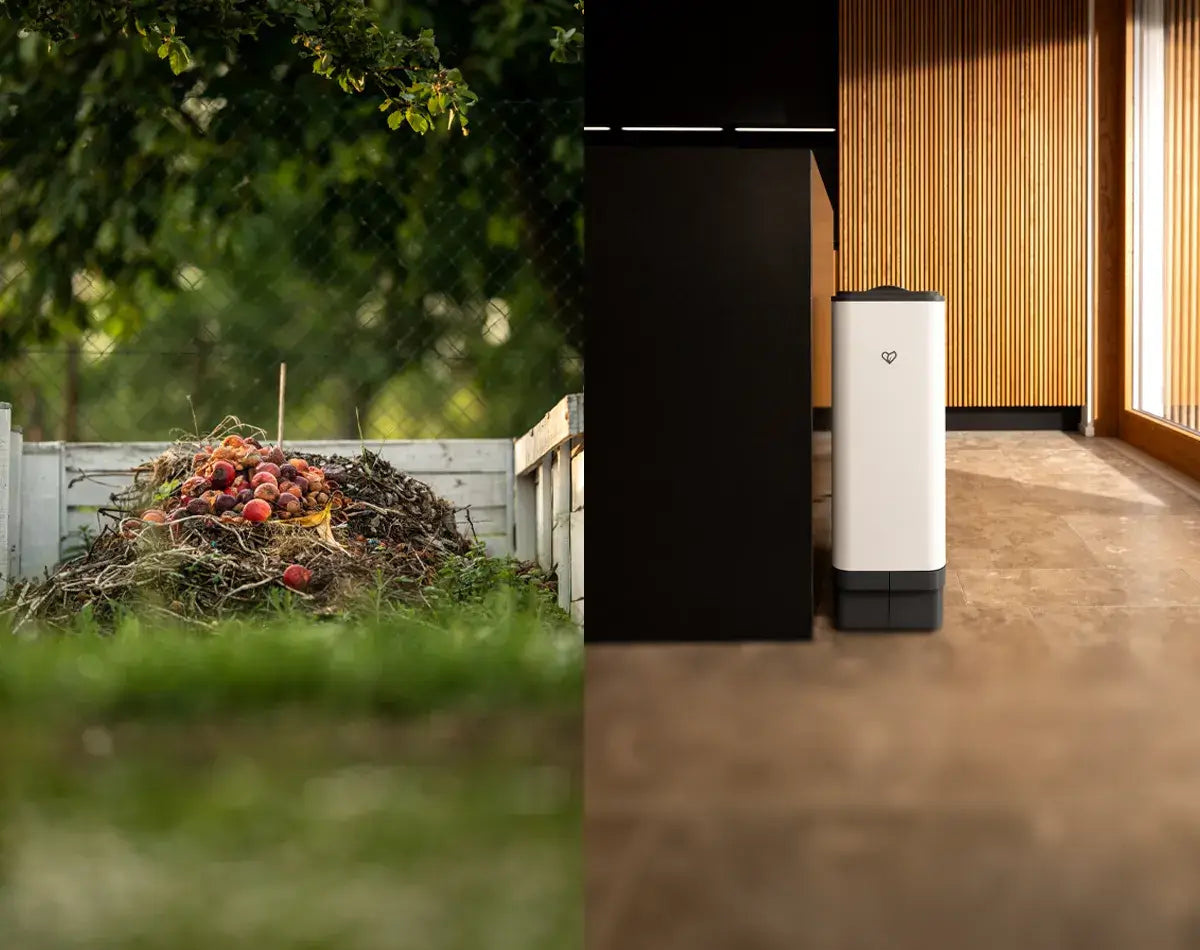Composting has numerous benefits for the environment: for example, it avoids biowaste in household waste and provides natural nutrients for plants. But how exactly does composting work? Here we reveal all the “magic tricks” behind it and how you can easily make your own compost at home with an indoor composter.
Nature as a guide - how compost works:
During composting, the main components of organic waste (sugar, starch, proteins, fats and later also cellulose) are broken down by microorganisms and converted into humic and mineral substances with the help of oxygen from the air.
Do you want to know exactly? This is what happens during composting:
The microorganisms involve various bacteria and fungi that occur naturally on all food, or through hand contact or from the air. The microorganisms cannot directly utilize the solid waste. With the help of water, oxygen and enzymes, which the microorganisms produce, the complex organic molecules are first broken down into smaller fragments via a so-called hydrolysis process, which can then be used for the growth and reproduction of the microorganisms. This also produces so-called humic substances and mineral compounds, which are an ideal source of nutrients for plants.
Without a sufficient amount of water, these enzymatic degradation processes come to a stop. If, on the other hand, there is too much water, there is not enough oxygen available for these reactions. Instead, fermentation and rotting processes set in, which can also break down the organic waste, but are associated with a very strong odor.
Temperature also plays a decisive role in composting: as with many chemical reactions, these take place faster when the temperature is higher. The warmer it is, the faster organic waste can be broken down. On the other hand, the temperature must not be too high (<60 °C), otherwise the microorganisms responsible for decomposition will die off.
Nature and high-tech combined: how the soilkind indoor composter works
As you can see, water, temperature and moisture regulation are essential in composting. Using smart sensor technology and sophisticated controls, soilkind ensures all of this so that the biochemical processes take place optimally and at maximum speed and the microorganisms can multiply optimally. This means that a large proportion of organic kitchen waste can be broken down and converted into valuable nutrients for plants within a very short time. The best thing? All this happens without you having to do anything except make soilkind happy with your organic waste.
Additional tips for the garden and household - more than just composting
Composting is an excellent way to convert organic waste into valuable soil for your plants at home or in the garden. You can collect your organic waste before disposing of it in your composter. For example, a solid compost container - whether made of metal or plastic - is suitable for this, in which you can safely store the waste.
When composting kitchen scraps, it is important to ensure a balanced mixture. This should prevent too much waste from accumulating and uncontrolled fermentation processes from starting - as such processes can cause undesirable odors. It is better to dispose of your organic waste in soilkind consistently throughout the day. Incidentally, soilkind does not need any assistance for this, as the electric composter works entirely without worms or additives.
A classic compost heap takes a lot of time. For quick results, we therefore recommend using a rapid composter. This product is ideal for use in the home and speeds up the composting process considerably. Thanks to modern technology and an intelligent control system, the organic waste is processed efficiently - whether you collect large quantities or just liters at a time. This makes it easy to turn kitchen waste into valuable compost that will enrich your garden and plants at home in the long term.





